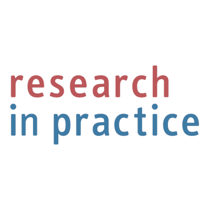Fetal alcohol spectrum disorder (FASD) is a lifelong neurodevelopmental condition that occurs in the fetus due to prenatal alcohol exposure (PAE). Explore an updated Research in Practice briefing on its impact for Alcohol Awareness Week.
FASD is caused by exposure to alcohol in utero. It can cause brain and central nervous system differences such as in attention, memory, language, motor skills and behaviour. It can also affect a person’s whole body.
Everyone working within social care need to be informed about FASD. Research finds that FASD is more common than autism and that rates are much higher for children in care and those who are adopted. Yet most people are undiagnosed.
Following changes in Adoption & Special Guardianship Support Fund, National FASD has called for funding of diagnosis and support. It is important we understand how it is caused, how the brain can be affected and how we can support people with FASD and their families.
The briefing explores how child and family social care practitioners play a pivotal role in prevention, recognising signs, supporting diagnosis, and advocating for support. It helps practitioners understand its impact on families, and how to support affected children and young people.
A child or young person can thrive when their strengths are recognised, their needs are met and they are appropriately supported.
Fetal alcohol spectrum disorder (FASD) – identifying and responding in practice with families: Frontline Briefing
This resource helps practitioners understand FASD, its impact on families, and how to support affected children and young people.




